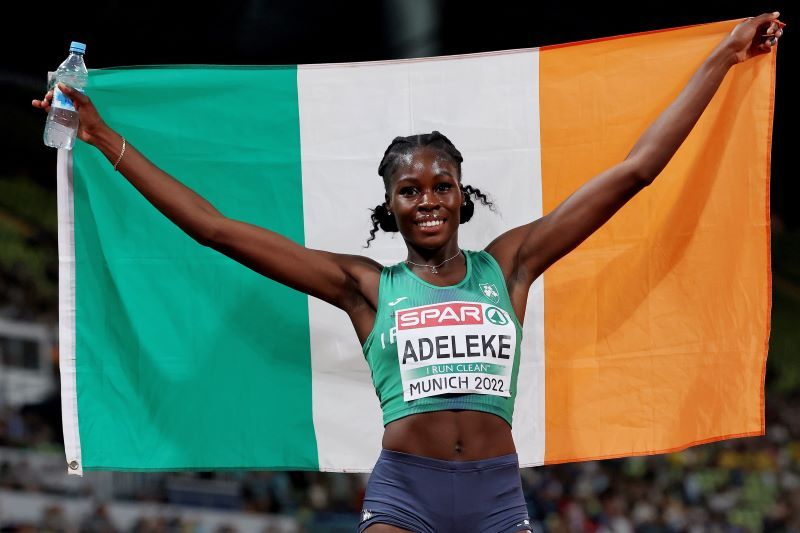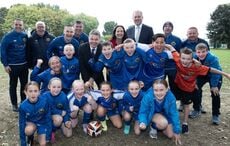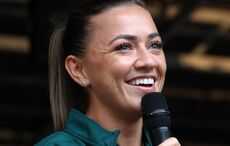A top Irish Gaelic football player has described how a gambling addiction almost ruined his life.
Niall McNamee, captain of the Offaly football team, told the Irish Independent that his father’s intervention and that of the Gaelic Players Association saved his life.
McNamee has become an ambassador for the GPA to highlight the message that there is help for despair that comes with addictions of all kinds, and that help is available, so please take it.
"The GPA have been brilliant. They have so many services available to players and they have been a great help to me," he explains.
"That's what I'd love to change – I'd say to anyone struggling with addiction that if you come forward to the GPA they will put you in contact with people who will look after you and put you on the right road and help to get your life back on track. But you have to break the silence."
McNamee recalls: "When I was gambling I knew I shouldn't have been in the bookies. I knew I didn't belong there. Everything about the place was wrong but I just couldn't stop going back.
"And then, when I lost money, I'd say 'that's it, never again.'
"As soon as I got money again, I was back gambling. Once you get to that stage, there's no going back from it. It's just madness until you actually put your hands up and say 'that's it, I'm beaten.'
"And even then it had to be dragged out of me. And that, I think, is a massive burden. People don't realize it's not like being an alcoholic or whatever. With alcohol there'll probably be a lot of physical signs and a lot of people see it, whereas with gambling it's all in your head, you're keeping it all within.
"I would have been in a bookies and lost the value of a car, and come out and someone would say 'how are things?' and I'd say, '100pc, not a bother'. That's insane.
"Sometimes, because I was in trouble and went into a bookies and made a lot of money I thought I could keep doing that, but eventually it just became too much and I couldn't actually stop it.
"It wasn't until my father confronted me over it, that I broke down and said 'that's it'. That was the best thing I ever did, but looking back, at the time it was the hardest thing I ever did because I didn't want anyone to know my weakness."
"My family and friends and the people of Rhode have been a terrific support for me," he says. "Gerry Cooney (his counselor) too, has been very good to me, and has been a massive part of my life. He more or less saved my life in a lot of ways, in terms of getting me back. I owe him a massive debt of gratitude."
"As time has gone on, and people see me around, some people do come to me or get my number and text me or e-mail me or chat to me on Facebook or whatever," he explains.
"I used to think I was the only person with this problem. When I was spending all this money I used to say 'what is wrong with me?' but there's thousands of people in the same boat.
"And that's the powerful thing about it. You're not alone. There is loads of help out there.
"I often say to people now, for anyone that thinks they have a problem, or who might have a family member in trouble or whatever, the hardest thing in the world is to actually admit it, but when you actually do admit it, it's the best feeling in the world.
"The weight off my shoulders when I told my father was unbelievable. I've said to people this very same thing: once you say 'right, this is exactly where I am' and put your hand up, it's so easy to fix it. That sounds easy for me to say, but it actually is. It's not the end of the world. You can actually sort yourself out.
"It's just at the time it's so much pressure. People's circumstances are different, the family or whatever, they might be afraid to tell anyone, they want to sort it themselves.
"It's embarrassing, well, it's not embarrassing, but you feel like you've failed.
"I was 25, just turned 26 and I felt, 'where am I going with my life? I owe X amount of money, I'm gambling my wages away every week. I'm not doing anything with my life. I'm going to work, gambling money at the week-ends, going training, playing football, but there's no direction, just living from week to week.'
"That's a horrible feeling for anyone to have. When I was growing up I would have set massive targets for myself, telling myself you can achieve anything you want and then found myself for four or five years in a rut doing the same thing over and over again.
"The difference now is once I've come into recovery, and have stopped gambling, I can see I can have a good life and be the best person I can possibly be.
"I think I can do anything I want to do, whereas two years ago I would have seen no value to myself. I didn't give a s**t about myself."
"It's a hard thing for any player to be injured and disappointments like that would be something that would have driven me to go gambling," he says.
"I'd want to get away, I'd be in bad form and say, 'ah, here, the hell with it, I'm off.'
"Even now, this year I tore my quad, and for five or six weeks it's a terrible place to be if you're injured.
"If I didn't have people to talk to, meetings to go to, and people to chat about all the stuff going on in your head, it could bring you back to all that stuff (gambling).
"That's something people don't realize. There's a lot of pressure on footballers to perform, week in, week out.
"Having an injury, or issues that could be going on at home, or problems at work, can weigh people down.
"If you don't have someone to talk about those worries, and they have a gambling addiction or if they're an alcoholic or whatever, it could set them off and make the problem worse.
"I've been lucky that I've good people around me and I can talk to them about anything that's going on.
"I think the lads with Offaly can see that as well. I'm very open with all the players. I'm very aware of lads that have a lot of stuff going on in their lives outside football. If they need anyone to talk to, I'm available.




Comments